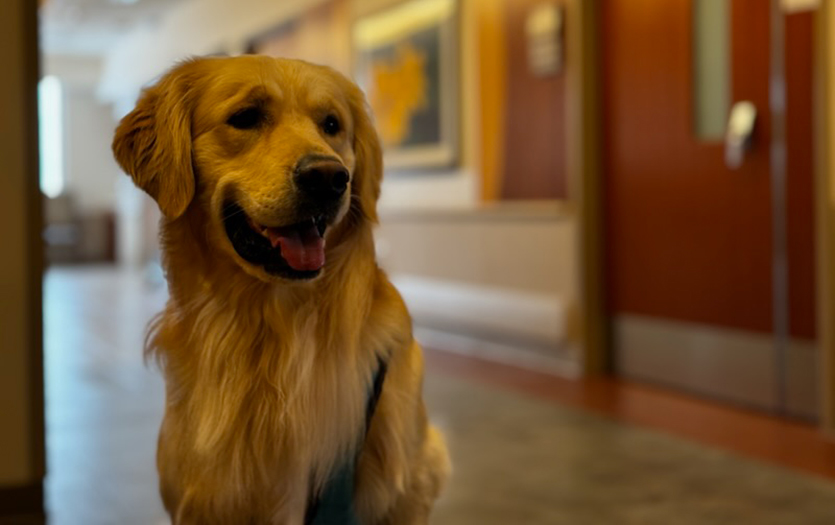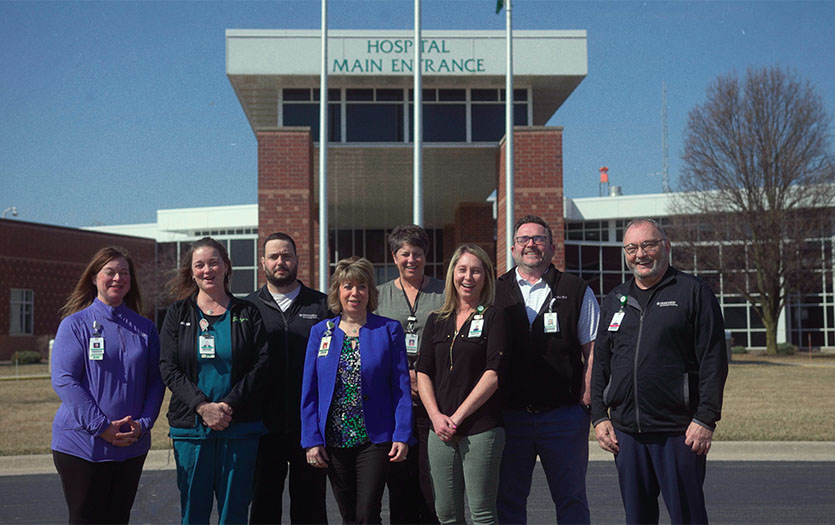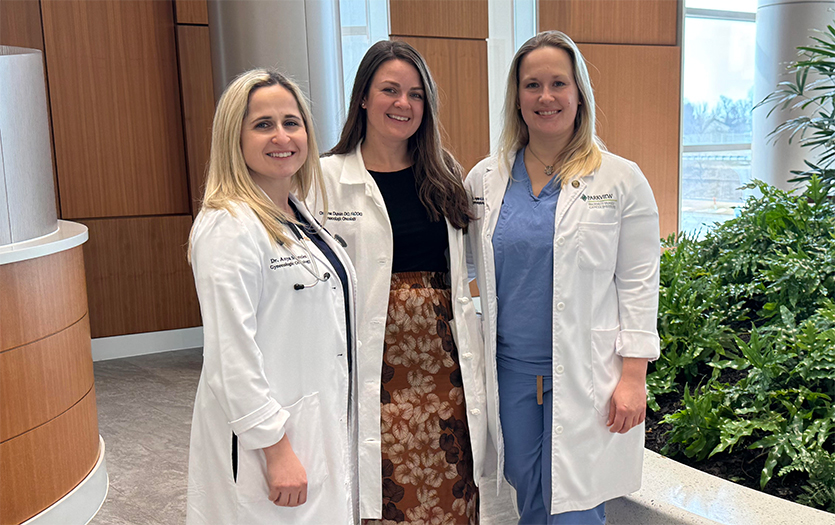A few years ago, Kaylyn Kistler, RN, BSN, CV-BC, cardiovascular nurse, Parkview Heart Institute, had an idea. Following the trying times of the COVID pandemic, she noticed the positive impact of the Three Rivers Visiting Dogs program. “Having them around for a couple of minutes made a huge difference, so I started to wonder what it would take to have a full-time therapy dog on the [inpatient] floor.”
She approached her leader, Tom Ibholm, director, Nursing Services Inpatient Cardiovascular, Parkview Heart Institute with the proposal. “I found out pet therapy was well-known,” Tom said. “But having one here every day in the hospital was uncommon.” Tom took the idea to Linda Francis, chief nursing officer, Parkview Health, and Mike GeRue, chief operating officer, Parkview Heart Institute, and they were very supportive. Linda had even used pet therapy before.
ROSC-O arrives
With the support of leadership and the Parkview Health Foundation, Tom and Kaylyn moved forward with their idea. Tom secured an eight-month-old golden retriever from the same breeder his sister had purchased a few dogs from.
They landed on the name ROSC-O, which is a nod to a common cardiovascular term. “When we code a patient, and we’re doing CPR, we want return of spontaneous circulation or ROSC,” Kaylyn shared.

Next was training. A dog must be at least one year old to be therapy certified. This gave Kaylyn and Tom time to work together to get ROSC-O qualified as an American Kennel Club (AKC) Canine Good Citizen, which makes him eligible to be a therapy dog. They also took this time to empower ROSC-O to be safe on the job. “There are things like wheelchairs and a lot of strange smells in a hospital,” Tom said. “We got him used to those things so that once he was therapy certified, ROSC-O could be calm and confident going into patients’ rooms and alongside physicians and team members through rounding.”
The response to ROSC-O
Unsurprisingly, team members and patients at the Heart Institute welcomed ROSC-O with open arms. “It’s rewarding to help patients and the whole team,” Kaylyn said. “I had someone tell me that having ROSC-O run down the hall toward him was the best part of his day. The staff loves having him on the staff as part of our team. It helps make the heart days a little easier.”
When he isn’t working, ROSC-O enjoys long walks with Tom. But when he puts his harness on, he knows he has a job to do, and his demeanor shifts to a calming, comforting presence. He makes rounds, provides a pick-me-up and then, when his shift is over, ROSC-O loads back up in the car and heads home.
The pair who came up with the idea to bring a therapy dog on site, are more than pleased with the early results of ROSC-O’s role. “I think it would be great if every floor had a ROSC-O,” Kaylyn said. “We have the Parkview Pups program, so the concept is already spreading, but it would be great if there were inpatient therapy dogs nationwide.”
Kaylyn and Tom are collecting data to further illustrate the impact of having a therapy dog on site, polling co-workers to capture their response to ROSC-O.
For Tom, the reactions to ROSC-O have been a reminder of the health system’s broader mission. “It’s about the sacred trust of taking care of patients and creating an environment that’s healing,” he said. “You can tell ROSC-O’s excited to be here, and I love creating a work environment where people are excited to be.”
Both the Parkview Pups program and ROSC-O are supported by generous donations to the Parkview Health Foundation. You can learn more about giving opportunities and ways you can support programs like these by visiting the Foundation here.



